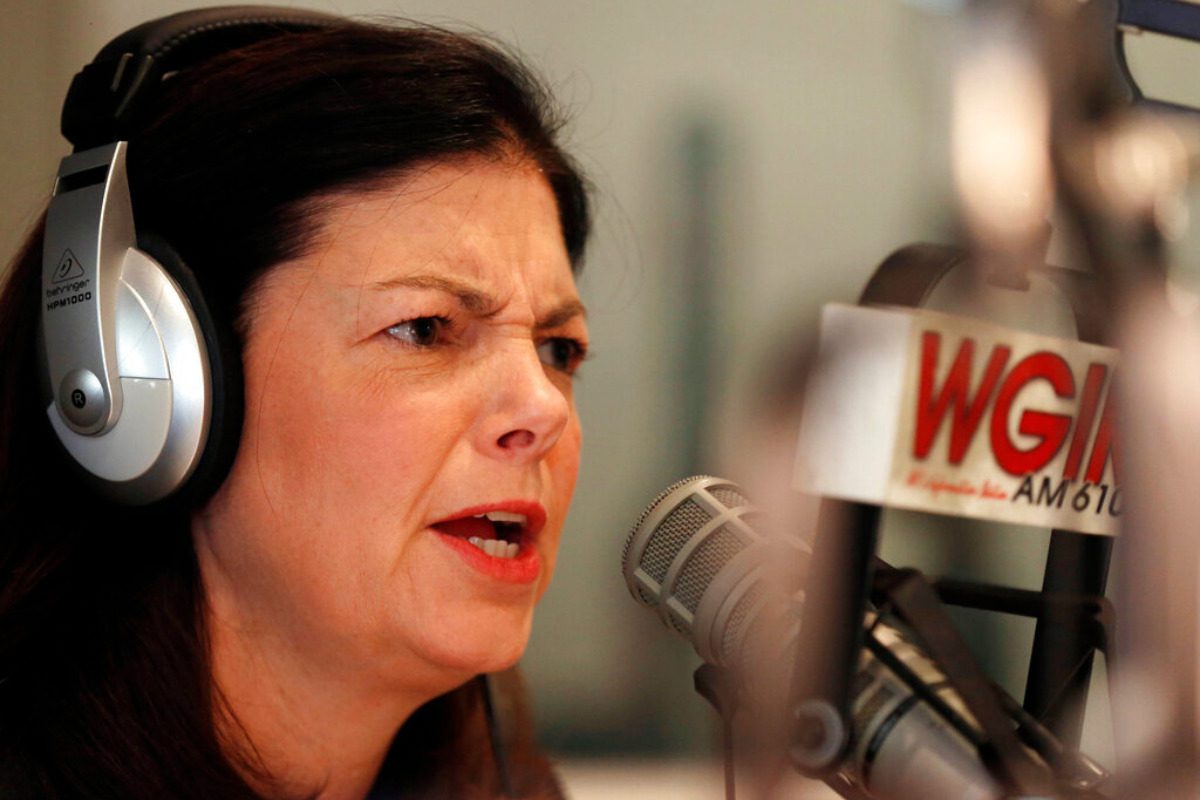
Kelly Ayotte and NH GOP are doubling down on repealing the Interest & Dividends tax, benefiting the wealthiest 1% — and likely saving Ayotte herself tens of thousands. But the cost will be downshifted to property taxpayers, squeezing middle-class Granite Staters. (AP)
In the final weeks of the 2024 election, Kelly Ayotte and the New Hampshire Republican Party establishment have focused the majority of their messaging defending eliminating a 100-year-old tax that would overwhelmingly only benefit the top 1% wealthiest of Granite Staters. But money has to come from somewhere, and the cost to pay for this cut is likely to be downshifted to all New Hampshire property tax payers.
There is also a high likelihood this tax would also personally save Ayotte anywhere from tens to hundreds of thousands of dollars a year.
The campaign messaging Ayotte and the NH GOP surrounds the Interest and Dividends tax, which Republicans initially repealed via a budget rider in 2021. Republicans later accelerated phaseout of the tax from 2028 to 2025. The tax was first implemented over 100 years ago in 1923 by the Republican dominated legislature.
The New Hampshire Fiscal Policy Institute — which has written at length about the I&D tax — has described repealing the tax as disproportionately benefitting households with $4 million to $13.4 million in investments with rates of return matching the average for the S&P 500, which would yield more than $200,000 in interest, dividend, and distribution income.
This lost revenue predominantly coming from the wealthiest households in the state for the state budget, estimated to be $135 million a year, is larger than the annual state operating support for the community college system, roughly the same as the budget for the Department of Corrections, or three quarters of all funding for “services to individuals with developmental disabilities.”
In a report from NHFPI titled “Households with High Incomes Disproportionately Benefit from Interest and Dividends Tax Repeal” they write that “for an individual filer to generate this $200,000 amount of income taxable under the Interest and Dividends Tax, rates of return ranging from the 1.51 percent average S&P 500 stock dividend yield in 2020 to a more robust 5 percent annual return rate suggest the wealth required would range from $4 million to $13.4 million”
While Ayotte has not made her stock and investment holdings public, a few of her multiple seats on large corporate boards — including private equity firm Blackstone — require public disclosures.
Ayotte reported acquiring at least $8.3 million in securities serving on corporate boards since leaving the Senate and holds $4.2 million in stocks held as of October 3, 2024 — likely a fraction of her overall holdings. She has since served on additional corporate boards where she was not required to disclose stock holdings in filings with the Securities and Exchange Commission.
Her actual holdings in 2024 are likely even higher, given the high market performance under the Biden-Harris administration.
Given those potentially vast stock holdings, Ayotte could be expected to save herself anywhere between tens to hundreds of thousands of dollars a year in I&D taxes. The very same taxes she is both defending and would herself oversee the repeal of.
Instead of shying away from the perception of self-dealing by overseeing such a drastic tax cut on the ultra wealthy like Ayotte, she has made it her campaign’s central message, attempting to imply the tax cut is a type of “income tax” that would be broadly levied against Granite Staters.
In conversations with lawmakers, the reality is that the tax cuts themselves will likely be a transfer of the tax burden from the top 1% of earners, downshifted to property taxpayers of the state.
State Representative Mary Jane Wallner, ranking Democrat on the House finance committee said that as the I&D tax is repealed, leading to budget cuts, some of the funding shortfall will inevitably have to be made up by increases in property taxes at the local level.
“The few very wealthiest people in the state are no longer going to have to pay this tax. And who’s going to pick it up? All the working people of the state,” Wallner said.
She noted that even if services are cut, the underlying needs of people will not go away, so cities and towns may have to raise property taxes to try to fill the gaps, as has happened historically with other cuts.
Property taxes in New Hampshire have been steadily increasing under Republican leadership of state government. On average, property taxes have increased by about 3-4% per year across the state, although the exact increase can vary significantly depending on the town or city.
Somersworth Mayor Matt Gerding said he’s seen this downshifting of tax burdens all too many times.
“Local budgets have become the dumping ground for whatever the State can no longer afford because of reckless Republican budgeting. The real issue is that the middle class is getting squeezed while multinational corporations and the rich get all the breaks. It’s time we start talking about a tax system that builds strong communities, with better access to high quality public, affordable housing, health care and child care, not tax cuts for the rich.”
State Senator Cindy Rosenwald, a member of the Senate Ways and Means committee said that, as it stands, only roughly 10% of people in the state have any liability under the I&D tax, with 80% of those paying less than $500 a year.
Rosenwald said tax cuts such as the repeal of the I&D tax has created a considerable challenge for the next budget, as other areas of state revenue have underperformed compared to I&D.
“There’s no plan to replace that revenue. The business taxes, our biggest source, are missing goal, liquor is missing goal, real estate transfer taxes missing goal, tobacco taxes, them down the tubes — That’s good news, but bad news — and what’s keeping us afloat is the interest in dividends tax and the interest on the state’s cash reserves, but that’s going to decline as interest rates come down,” Rosenwald said.
Speaking on Republicans referring to I&D, Wallner noted “it’s just a scare tactic the minute they use the word income tax.” She said Republicans used the same strategy in 2020.
MacKenzie Nicholson, Senior Director, New Hampshire, MomsRising Together, a grassroots organization focused on economic security for moms, women, and families in the United States said moving this tax burden to the property taxes of seniors and working families was an unpopular move among Granite Staters.
“The vast majority of people in this nation want everyone to contribute their fair share, so our communities and our country can succeed.” Said Nicholson. “When tax policies favor the wealthiest, property taxpayers are forced to pay more and we lack the resources we need to support our communities.”
“A $160 MILLION tax hike is the last thing New Hampshire needs,” Ayotte’s campaign posted on twitter recently, misleadingly implying the tax would be applied broadly.
The cuts also come amid mounting money concerns for the state, with the ConVal school funding lawsuit, continuously cut business tax revenues falling below forecasts, and massive monetary decisions in limbo for victims of the Sununu Youth Development Center, which the state is on the hook for — and which some New Hampshire leaders accuse Ayotte for bearing responsibility.
While Republicans have made this massive transfer of wealth from the top 1% of Granite Staters to property tax owners a central pillar of their campaign, Democrat Joyce Craig has offered a clear message on her tax policy: “I will veto any sales or income tax that comes to my desk.”
Support Our Cause
Thank you for taking the time to read our work. Before you go, we hope you'll consider supporting our values-driven journalism, which has always strived to make clear what's really at stake for New Hampshirites and our future.
Since day one, our goal here at Granite Post has always been to empower people across the state with fact-based news and information. We believe that when people are armed with knowledge about what's happening in their local, state, and federal governments—including who is working on their behalf and who is actively trying to block efforts aimed at improving the daily lives of Granite State families—they will be inspired to become civically engaged.


Election fatigue? Here’s how to recharge your mental health
We all have our personal struggles in life, from work stress to relationship drama, but something about the 2024 election season simply felt...

Trump wins the White House
In state after state, Trump outperformed what he did in the 2020 election while Harris failed to do as well as Joe Biden did in winning the...

Presidential race too close to call as vote counts continue in key swing states
Results in Michigan, Pennsylvania, and Wisconsin may not come in until Wednesday morning, and Arizona and Nevada are unlikely to see calls made...

Chris Pappas defeats Russell Prescott in New Hampshire’s 1st Congressional District
Congressman Chris Pappas has defeated Republican challenger Russell Prescott in New Hampshire’s 1st Congressional District. Pappas, an openly gay...

Reporter’s notebook: Here’s what the vibe was like at polling places across NH
Granite Staters are showing up to elect the next president of the United States—and bringing the good vibes with them. Election Day is nearly...

New Hampshire on track to set record turnout for general election
New Hampshire voters are on track for a record voter turnout at the general election on Tuesday. The Secretary of State David Scanlan said Thursday...




